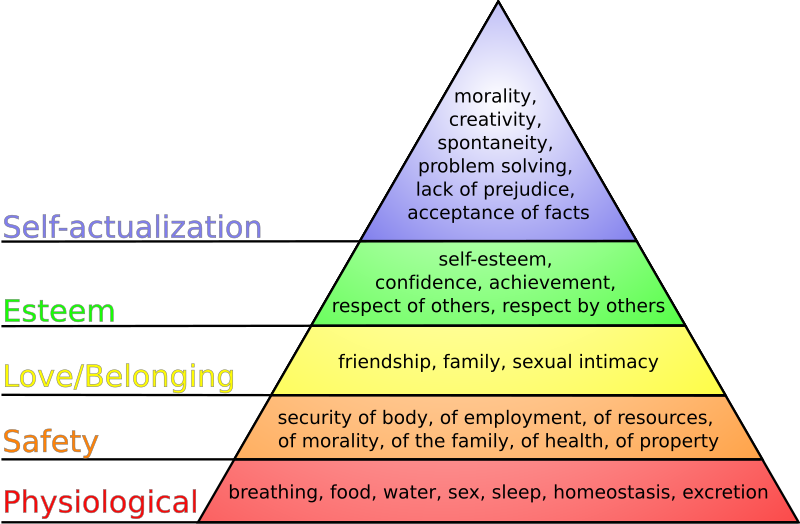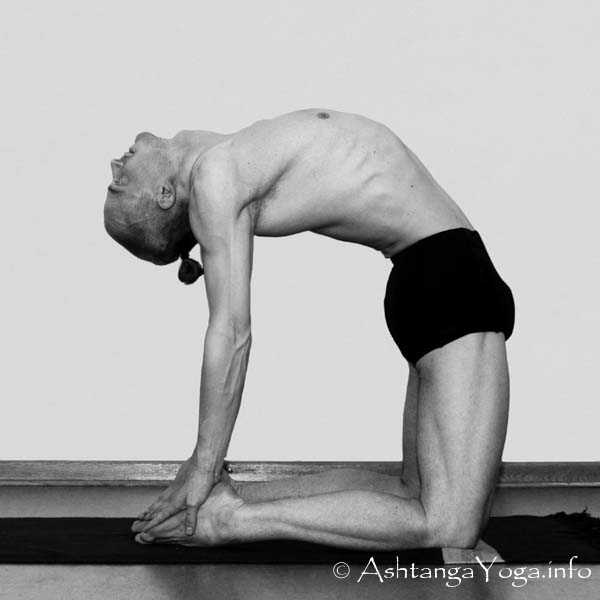Wipe the slate clean. Totally.
Efface your possessions, your agendas, obligations, your job, your hobbies, what society deems as important, what the news feels is 'newsworthy', politics, the supreme un-equalizer: money. Picture 'your life' and all that surrounds it as a chalk board on your lap with those little plastic magnet letters, shapes, symbols arranged accordingly.
Now sweep your hand across it and scatter it all. Break it down.
Or, if this helps, imagine you are about to retire.
What is really left? What is necessary, important? What will/has actually sustained you??
We spend about 1/3 of our lives sleeping. Seems that dreaming/restoration is important. Waking life, bridging the dichotom-ic chasm-like quality between thought and action spins that web, the plastic magnets. So does family, friends, human connection.
But what are our true 'obligations'? To ourselves, to each other? It has been said: to love and serve, seems simple enough...Yet within that, we humans just can't sit still. We've constructed this world from nothingggg. Well, thought is something (the source of everything, essentially), but can't be held, touched, so in that way, it's nothing. What's with the need, the incessant NEED to create objects, empires, dynasties? To validate existence with something tangible, when we know (hopefully) that what is really important is not at all tangible?
Maybe we can't have one without the other?
We are here today because of a tiny little drive to life (creation) that has dually expanded and compounded upon itself, becoming denser and denser and bigger and 'better' as the generations progress...(Sidenote: it really is a tricky thing to assign value in this sort of place, hence the ' ') Passing on the detritus of sorts of physical constructions, economies of scale, culture, language- all the things, visible and invisible, complete and incomplete, that make human life as we know it today so incredibly complex and unique. It's kind of ironic because the fossil fuel we've been using of late (when did that actually start? Industrial revolution?) to propel our 'progress' is, essentially, compounded materia of eons past. Ahhhhh energy cycles!!!
So yea,
This exercise had me undone. Just a little. Totally emptied the 'purpose' of life (uhhh, scary?).
"Philosophy is a walk on the slippery rocks." Watch yourself. That moss, mixed with dawn's early dew, and some rain now too, it will have you trippin and flippin over your mis-stepped perceptions of depth, magic-eye crossed to pop back a twisted image of what's 'there' mixed with what you've got in 'here'- wait, where? When will the image come un-blurred, for sure, for certain death and taxes are the burden, both created and debated by the hand that dealt the first card, where I'm goin with this, that's hard to say, to see, in this together you me the world we's a team against itself goal keeper of the nets of constructed truth can't let all the balls slip through but perfect your kick, perform a hattrick times three, ooooohhhh then let it beeee ...
--random rhyme break--
I don't really recommend this if you're not in a healthy state of mind, on a psychedelic drug trip, or if you can't break out of the sweat of exercise. That wheel can spin really fast, depending on the angle of the hill you push it down...
The need to break everything down into nothing has been around before. The flip-side: death is there, chillin. But maybe it's not what we think? Death has caught some tough breaks...maybe he's really hearty and happy and sweet, the real fuel to life's fire. After death, no- through death- one is given the chance to come out 'harder better faster stronger'. Like the Mexicans who celebrate death, I can't help but be fascinated and curious as to what that other side contains...so annnnyywayyy. . .
Last late-summer it (the need to break everything down into nothing to get back to something) was launched by a 'manuscript' that, for me, really harmonized all the problems and potential solutions of humanity and life on this planet. I couldn't share it with people beyond a certain limit and being self-contained within the borderless, boundless structures (can you tell I love contradictory opposites when sidled up together? It makes things MAKE SENSE. Yin/Yang?!) of the profound meanings and messages revealed to me was overwhelming to say the least.
Where do you turn, what the hell do you do when you think you have something to help others (the world) but can't find the proper outlet? To start, you better step out of your own way, that's what. Ok ok ok, this is getting a bit sloppy. Changing the world- bahhaha!
Back to the exercise. It requires, first and foremost, a sense of purpose, important to note- NOT something born by imposed expectations exterior to yourself. Then, control. Oh control, you bastion of human will.
Hmm maybe using an example external to myself will help crystallize...
To preface this guy's hard-working brilliance, I must say that the need for humans to exert control over nature (don't fcuk with nature, fool) is what got us here to begin with. Loop, de loop.
"Once you have a mission, you can't go back to having a job." That awesome, quote-worthy sentence was spoken by Shai Agassi, the man who is working on 'an audacious plan to put electric cars on the road'. Ha, better: when asked if he's worried about a competitor stealing his idea, he stares at the reporter like he's an idiot. "The mission is to end oil," he says, "not create a company."
So think about that. The idea of a Mission. Once you've emptied the vessel of your life as you know it, can you manage to come back around and find what's left? The driver of a mission that, instead of adding to the misery of this world, helps clear it; one bigger in its solitude than all the combined bullshit that humanity has created around the essentials of life...That bullshit is comforting though. Maybe it has something to do with natural selection. We can't all have missions. There have to be executers too. Smaller branches growing out of the will of the larger ones, if you will. Everything will work itself out anyway, has for how many centuries??
Brings me now to Abraham Maslow who in his 1943 paper A Theory of Human Motivation extracted what marketing and psych students study as the 'Hierarchy of Needs':

_____________________________
"It's not so much where my motivation comes from, but rather how it manages to survive."
- Louise Bourgeois
This woman is 96 years old and has been creating art for much of her time. The Gügg's retrospective on her life and works was humbling and inspiring. Fantastic.
Arch of Hysteria, 1993

"Stemming from her interest in the physical, emotional, and psychological aspects of pain and fear, Bourgeois was drawn to the arch of hysteria as theorized and represented by the nineteenth-century neurologist Jean Martin Charcot (1825-1893). While working at the Salpêtrière Hospital in Paris, Charcot sought to represent hysteria by documenting the performances of his female patients. The physical tension of the hysterical arch - an intense muscular contraction, resulting in immobility and paralysis of the limbs - is emblematic of an equally extreme emotional state. Bourgeois makes this highly vulnerable position even more so by suspending her male figure from the ceiling. In choosing to represent him in an attitude traditionally associated with the female, the artist transgresses the social and sexual roles assigned to women, challenging the misconception of hysteria as a female malady."
In yoga, this pose:
 "Ustrasana ("camel pose") is a very deep backward bend performed in a kneeling position. As a stretch it opens the whole of the front of the body, including the hip flexors and pectoral muscles. Traditionally it is seen as opening the "heart center". Many people find backbends difficult or challenging, because bending backwards is not an activity with which most are familiar. Practicing Ustrasana can make many beginners new to yoga feel distinctly ill, with lightheadedness or nausea being quite common after-effects. However, this does usually improve with practice. The posture improves core strength, spinal, hip and shoulder flexibility and stamina."
"Ustrasana ("camel pose") is a very deep backward bend performed in a kneeling position. As a stretch it opens the whole of the front of the body, including the hip flexors and pectoral muscles. Traditionally it is seen as opening the "heart center". Many people find backbends difficult or challenging, because bending backwards is not an activity with which most are familiar. Practicing Ustrasana can make many beginners new to yoga feel distinctly ill, with lightheadedness or nausea being quite common after-effects. However, this does usually improve with practice. The posture improves core strength, spinal, hip and shoulder flexibility and stamina."Funny how closely hysteria and the heart center can be related when comparing Bourgeois' sculpture and one of my personal favorite postures. It's all about the context, I guess. But to reverse your view on the world by turning it upside down for a good 30 seconds, twice, effectively helps to re-focus and re-equilibrate. Maybe that's unconsciously what the bodies of those poor hysterical women in 1800 France were trying to do for them.
Louise got it out like this :
 ...but you gotta be a little off-your-rocker to really create, right?
...but you gotta be a little off-your-rocker to really create, right?























 today.
today. 














